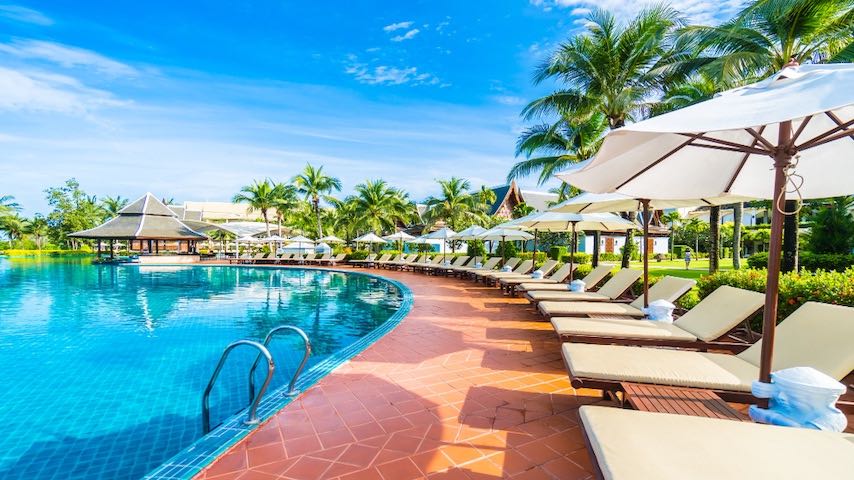
As environmental awareness increases, the trend of natural pools has gained significant popularity among homeowners worldwide. These pools, blending seamlessly with their natural surroundings, are seen as eco-friendly alternatives to traditional chemically treated pools. Combining aesthetic beauty with reduced chemical use, natural pools offer a sustainable way to enjoy outdoor swimming. However, like any innovation, they come with unique benefits and challenges. This article explores the rising trend, highlighting why more people are opting for these pools and what potential drawbacks they should consider before making the switch.
Why the Trend of Natural Pools Is Growing
Natural pools are gaining momentum due to their environmentally friendly features and ability to enhance outdoor spaces. Unlike conventional pools, which rely heavily on chlorine and other chemicals, natural pools use biological filtration systems to maintain clean water. These systems mimic natural ecosystems, using plants and microorganisms to keep water healthy and balanced. As a result, many homeowners find natural pools not only more sustainable but also safer for families and pets.
Moreover, the design of natural pools often integrates with the landscape, creating a harmonious outdoor aesthetic. Their versatility makes them suitable for various climates and property sizes, further fueling their appeal. The trend of natural pools reflects a broader cultural shift towards environmentally conscious living, as individuals seek solutions that align with eco-friendly values. Despite these advantages, understanding the challenges associated with natural pools is crucial to making an informed decision.
The Benefits of Adopting Natural Pools
One of the most significant advantages of natural pools is the absence of harsh chemicals. Traditional pools require routine chemical treatments, which can cause skin irritation or respiratory issues for sensitive individuals. Natural pools offer a healthier alternative, using organic systems that prioritize well-being. Additionally, natural pools are often more cost-effective over time, as they eliminate the ongoing expense of purchasing and applying pool chemicals.
Another benefit is the aesthetic flexibility natural pools provide. Their designs can range from minimalist modern styles to lush, lagoon-like environments. This adaptability makes them appealing to those looking to create unique outdoor spaces. Furthermore, natural pools typically require less water, as they incorporate regenerative systems that reduce evaporation. This feature is especially valuable in regions facing water shortages or restrictions.
Maintenance can also be simpler, as natural pools rely on a balanced ecosystem rather than frequent chemical adjustments. Partnering with specialized services, such as a spa cleaning and maintenance service, Victorville, ensures the pool’s ecosystem remains healthy while addressing any mechanical needs. This combination of sustainability, health benefits, and reduced costs underscores why natural pools are becoming increasingly popular.
Challenges of Maintaining Natural Pools
Despite their many advantages, natural pools come with specific challenges that potential owners should consider. The initial cost of constructing a natural pool is often higher than that of traditional pools. Building the biological filtration system, including the regeneration zone for aquatic plants, requires specialized expertise and materials. While these costs can be offset by lower long-term maintenance expenses, they may deter some homeowners.
Moreover, natural pools demand regular monitoring to ensure the biological balance remains stable. Seasonal changes, including temperature fluctuations and varying levels of sunlight, can impact the ecosystem. For instance, algae blooms may become a problem if the pool’s biological processes are disrupted. Homeowners must remain vigilant and invest in routine care to address these issues promptly.
Natural pools also require a larger footprint compared to traditional pools. The regeneration zone, an essential component of the system, can take up significant space, limiting their feasibility for smaller properties. Understanding these limitations is vital for homeowners looking to embrace the trend of natural pools while ensuring compatibility with their lifestyle and property.
Are Natural Pools Worth the Investment?
Deciding whether to invest in a natural pool depends on individual priorities, such as environmental values, budget, and available space. For those passionate about sustainability, the trend of natural pools aligns perfectly with reducing ecological footprints. Their low chemical reliance and water-saving features offer compelling reasons to consider this option.
However, homeowners should weigh the upfront costs and ongoing maintenance requirements against the benefits. For example, individuals who prioritize minimal upkeep might find traditional pools more convenient. Similarly, those with limited outdoor space may need to explore creative solutions to integrate a natural pool design effectively.
Engaging professional services, such as spa cleaning and maintenance, can alleviate some challenges by ensuring the pool remains in optimal condition. This balance of professional expertise and personal commitment determines whether natural pools are a worthwhile investment.
Final Words
The trend of natural pools is a reflection of society’s growing commitment to sustainability and environmental awareness. Offering numerous benefits, including reduced chemical use and enhanced aesthetic appeal, natural pools are a transformative addition to modern landscapes. However, their challenges, such as higher upfront costs and specific maintenance needs, require careful consideration.
By understanding the pros and cons, homeowners can decide if a natural pool aligns with their values, lifestyle, and property. Whether motivated by health concerns, eco-friendly goals, or a desire for unique outdoor spaces, the allure of natural pools continues to inspire change in how we think about swimming environments.
 Explore Our Websites
Explore Our Websites bcrelx.com
bcrelx.com




Leave a Reply